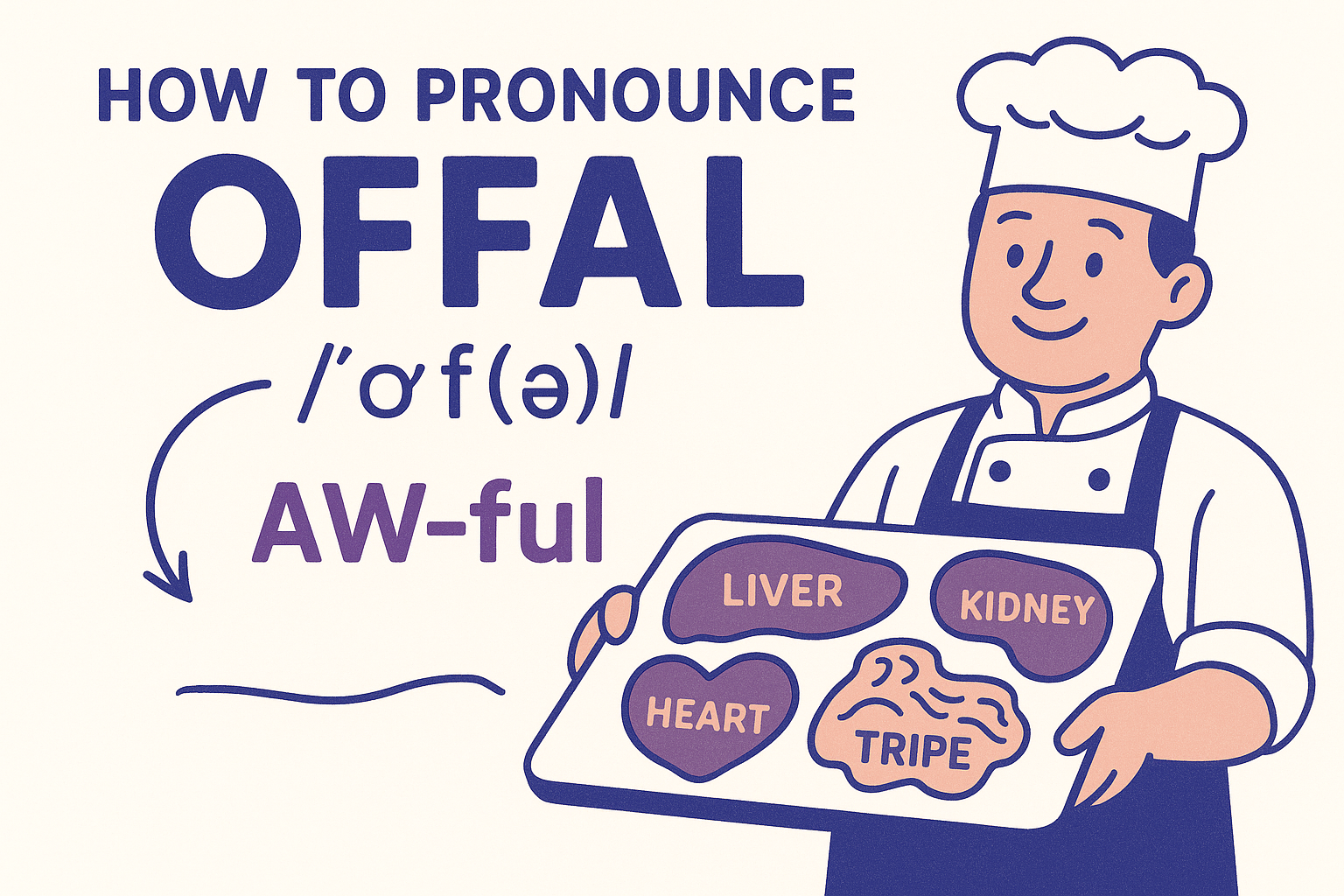How to pronounce
Offal
You’ve likely seen the word “offal” in butcher shops or recipes, but its pronunciation changes slightly by region.
Step‑by‑Step Pronunciation Guide
British English: /ˈɒf.əl/ → OFF‑ul
Breaking it down — OFF (short “o” as in “offer”), ul (a quick, soft əl). Stress the first syllable.
American English: /ˈɔː.fəl/ → AW‑ful
Breaking it down — AW (open “aw” as in “law”), ful (soft fəl). Stress the first syllable.Both versions have two syllables and end with a light “ul / fəl” sound. While OFF‑ul is common in the U K. and culinary circles, AW‑ful is widely heard in North America.
Common Mispronunciations
• Pronouncing it exactly like the adjective “awful” with a harsh aw and strong l
• Saying “oh‑FALL” with stress on the second syllable
• Lengthening it to three syllables (“off‑ah‑luh”)
Practice Sentences
• “The chef’s specialty is grilled offal, especially lamb kidneys.”
• “Traditional haggis contains various sheep offal.”
• “Zero‑waste cooking encourages using offal instead of discarding it.”
Offal in Food Culture
From British steak‑and‑kidney pie to Mexican tacos de lengua and Filipino dinuguan, offal dishes are integral to many cuisines. Knowing the pronunciation — OFF‑ul in British contexts or AW‑ful in American speech — helps when ordering or discussing these classic plates.

Definition of
Offal
Offal refers to the edible internal organs and entrails of an animal — such as liver, heart, kidneys, and tripe — often used in pâtés, sausages, and regional dishes around the world.
What does it mean
Offal
From Old English offal — literally “off‑fall,” referring to the parts that fall off an animal during butchering. Over time, it came to denote edible internal organs and trimmings.
Frequently asked questions
Auto-record your calls for instant
feedback on communication

Know how to improve speaking
after every Google Meet call





.svg)
.avif)
